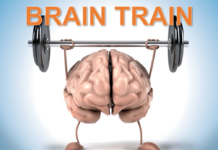What are the healthiest foods? We asked the artificial intelligence platform ChatGPT that question. First, A.I. came up with a top 10 list. Then we asked it to zero in on the #1 healthiest food. Everything that follows with a green background was written by A.I.
TOP 10 HEALTHIEST FOODS
Ranking the healthiest foods is subjective, as each food offers unique nutritional benefits. However, based on their nutrient density and research-backed health benefits, here’s a subjective ranking of the top 10 healthiest foods, along with explanations of why each is considered very healthy:
1. LEAFY GREENS
Spinach, Kale, Swiss Chard
Why it’s healthy: Leafy greens are packed with vitamins (like A, C, K), minerals (such as iron and calcium), antioxidants, and fiber. They’re low in calories and carbohydrates but high in nutrients, making them excellent for overall health, including heart health, bone health, and digestion.
2. BERRIES
Blueberries, Strawberries, Raspberries

Why it’s healthy: Berries are rich in antioxidants, particularly anthocyanins, which have been linked to reduced inflammation, improved cognitive function, and a lower risk of chronic diseases like heart disease and cancer. They’re also high in fiber and vitamins, making them a great choice for overall health and well-being.
3. FATTY FISH
Salmon, Mackerel, Sardines
Why it’s healthy: Fatty fish are excellent sources of omega-3 fatty acids, particularly EPA and DHA, which are essential for heart health, brain function, and reducing inflammation in the body. They’re also rich in high-quality protein and various vitamins and minerals, making them a cornerstone of a healthy diet.
4. NUTS AND SEEDS
Almonds, Walnuts, Chia Seeds, Flaxseeds
Why they’re healthy: Nuts and seeds are nutrient-dense sources of healthy fats, protein, fiber, vitamins, and minerals. They’re particularly rich in monounsaturated and polyunsaturated fats, which are beneficial for heart health. Additionally, they contain antioxidants and other bioactive compounds that offer various health benefits, including reducing inflammation and improving cholesterol levels.
5. WHOLE GRAINS
Quinoa, Brown Rice, Oats, Barley
Why they’re healthy: Whole grains are rich in fiber, vitamins, minerals, and antioxidants. Unlike refined grains, whole grains contain the bran, germ, and endosperm, retaining more nutrients and providing sustained energy. They’re linked to a reduced risk of heart disease, type 2 diabetes, and certain cancers, and they support digestive health and weight management.
6. LEGUMES
Beans, Lentils, Chickpeas, Peas
Why they’re healthy: Legumes are excellent sources of plant-based protein, fiber, vitamins, and minerals. They’re low in fat and cholesterol, making them heart-healthy choices. Additionally, legumes have a low glycemic index, which helps regulate blood sugar levels and may reduce the risk of type 2 diabetes.
7. CRUCIEROUS VEGETABLES
Broccoli, Cauliflower, Brussels Sprouts, Cabbage
Why they’re healthy: Cruciferous vegetables are rich in vitamins, minerals, fiber, and antioxidants. They contain sulforaphane, indole-3-carbinol, and other bioactive compounds that have been linked to a reduced risk of cancer, particularly in the digestive tract. They also support detoxification processes in the body and promote overall health.
8. AVOCADOS
Why they’re healthy: Avocados are loaded with heart-healthy monounsaturated fats, fiber, vitamins (such as vitamin K, vitamin E, and vitamin C), and minerals (including potassium). They’re beneficial for heart health, weight management, and blood sugar control. Additionally, avocados contain antioxidants like lutein and zeaxanthin, which are important for eye health.
9. GREEK YOGURT

Why it’s healthy: Greek yogurt is rich in protein, calcium, probiotics, and vitamins (like B12 and riboflavin). It supports bone health, gut health, and immune function. Probiotics in Greek yogurt promote a healthy balance of gut bacteria, which is essential for digestive health and overall well-being.
10. TOMATOES
Why they’re healthy: Tomatoes are rich in vitamins (such as vitamin C, vitamin K, and folate), minerals (including potassium), antioxidants (like lycopene), and fiber. Lycopene, in particular, has been associated with a reduced risk of certain cancers, including prostate cancer. Tomatoes also support heart health, eye health, and skin health.
These foods offer a wide range of nutrients and health benefits, and incorporating them into your diet can contribute to overall health and well-being. It’s important to enjoy a variety of nutrient-dense foods to ensure you’re getting all the essential nutrients your body needs.
HEALTHIEST FOOD
It’s challenging to pinpoint a single “healthiest” food because optimal nutrition comes from a balanced diet that includes a variety of nutrient-dense foods. However, if I had to pick one food that provides a remarkable array of essential nutrients, it would be spinach.
Spinach is incredibly nutrient-dense, packed with vitamins, minerals, and antioxidants. It’s low in calories and carbohydrates but high in fiber, making it an excellent choice for weight management and digestive health. Here are some reasons why spinach is often considered one of the healthiest foods:
Rich in vitamins and minerals: Spinach is an excellent source of vitamin K, vitamin A, vitamin C, folate, iron, and manganese. It also contains smaller amounts of other vitamins and minerals like calcium, potassium, magnesium, and vitamin E.
Antioxidant properties: Spinach contains various antioxidants, including lutein, zeaxanthin, and beta-carotene, which help protect cells from damage caused by free radicals and may reduce the risk of chronic diseases.

Heart health: The nitrates in spinach may help lower blood pressure and improve overall heart health. Its high potassium content is also beneficial for maintaining healthy blood pressure levels.
Bone health: Spinach is a good source of vitamin K, which is essential for bone health and may help reduce the risk of osteoporosis.
Eye health: The lutein and zeaxanthin in spinach are known to promote eye health and reduce the risk of age-related macular degeneration.
While spinach offers numerous health benefits, it’s important to consume a variety of foods to ensure you’re getting all the nutrients your body needs. Incorporating spinach into your diet, along with other nutrient-dense foods like fruits, vegetables, whole grains, lean proteins, and healthy fats, can contribute to overall health and well-being.

















































